Give private schools more motivation
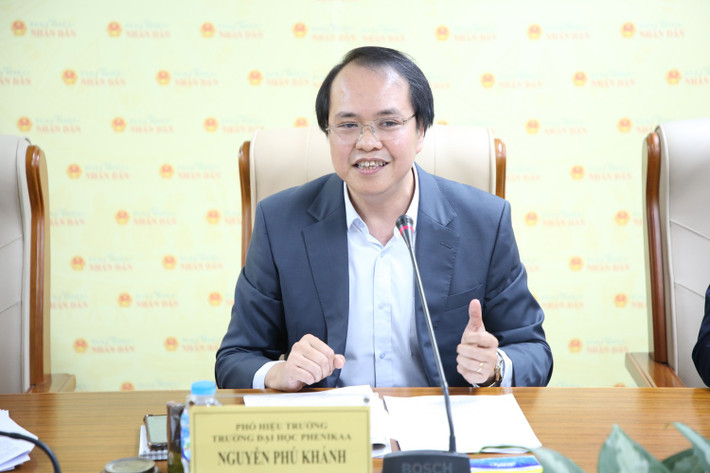
According to Mr. Khanh, the innovation ecosystem in public and private universities has very different environments but the goals are very similar. When Resolution 57 was issued, there was a very favorable factor, which was "leading technology". When the school applied this Resolution to Phenikaa University, there were many favorable conditions to create an ecosystem, creating incentives for scientists and students to study, train and research.
The school has applied the 3-house model in the training environment, educators - researchers and business people. Educators are teachers who are teaching, researchers are where teachers with good expertise gather, and business people are factories and hospitals. At Phenikaa, we have 6 start-ups with the participation of all 3 houses. These models create rich experiences for students and researchers.
Regarding the issue of exporting science and technology, Mr. Khanh shared that when connecting schools with businesses, many products that researchers make are brought to businesses and applied in the fastest way. This is beneficial for businesses and also creates income and inspiration for teachers to participate in research.
Resolution 57 helps us to be more proactive in language and accept risks in the testing process. Accordingly, it creates conditions for new technology startups to be able to test risks. Startups cannot "live" immediately but need a process to perfect the product. Resolution 57 has encouraged businesses to use Startup technology so that schools can nurture the research process and create output.
In terms of supporting groups of authors and students, the school must divide them into groups: teachers who only want to teach, teachers who only want to research, and teachers who are willing to participate in both. The school has international standards and has an economic fund to support them, in addition to supporting the teaching assistants who are excellent students, providing scholarships so that they can participate in research with the teachers.
Mr. Khanh believes that there needs to be an early training strategy to help students become aware of using technology while they are still in school. “The same goes for AI, it takes time to nurture and train. We have teams that reach out to middle schools and high schools so that students can access AI early and support them in their studies and work for 10 years, equipping them with the spirit of daring to experience and daring to debate,” Mr. Nguyen Phu Khanh emphasized.
Need support policies for private schools
Regarding policy issues, in the planning of the education system, Mr. Khanh said that there should be clearer policies on the state's investment and support for the private education sector. Phenikaa is a very new school to connect and work with schools, education systems, and businesses that have gone before is a great effort. When the resolution introduced policies on innovation and creativity, private schools were more inspired to participate in innovation and creativity.
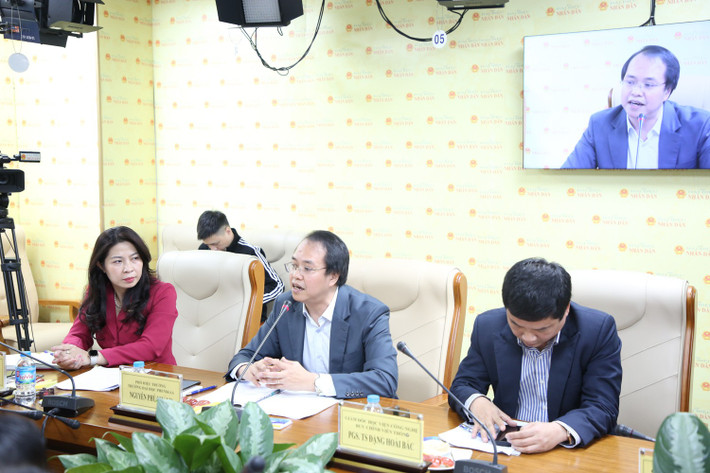
Mr. Khanh also hopes that in addition to the scholarships that the school has supported students, the government needs to have more policies to stimulate creativity within these students. Mr. Khanh also shared about the state-level scientific topics that the school is undertaking. He also hopes that the government will give autonomy to private units to encourage participation in scientific topics.
Mr. Khanh also mentioned the server issue when he said that this is a very important factor in the AI industry. The government should set up a server system and support universities, not let schools build their own servers.
On the other hand, Mr. Khanh also hopes that the state and the Government will have policies to encourage Vietnamese enterprises to use Vietnamese products to increase their potential and output for research products. The expert also gave an example: "In developed economic countries, they collect 20% but only pay 19%, and the remaining 1% they have the right to invest in the schools they want. We should learn and the government will control the issue of investment efficiency" - Mr. Khanh said.
Source: https://daibieunhandan.vn/them-niem-tin-cho-truong-ngoai-cong-lap-dao-tao-nguon-nhan-luc-chat-luong-cao-post407452.html











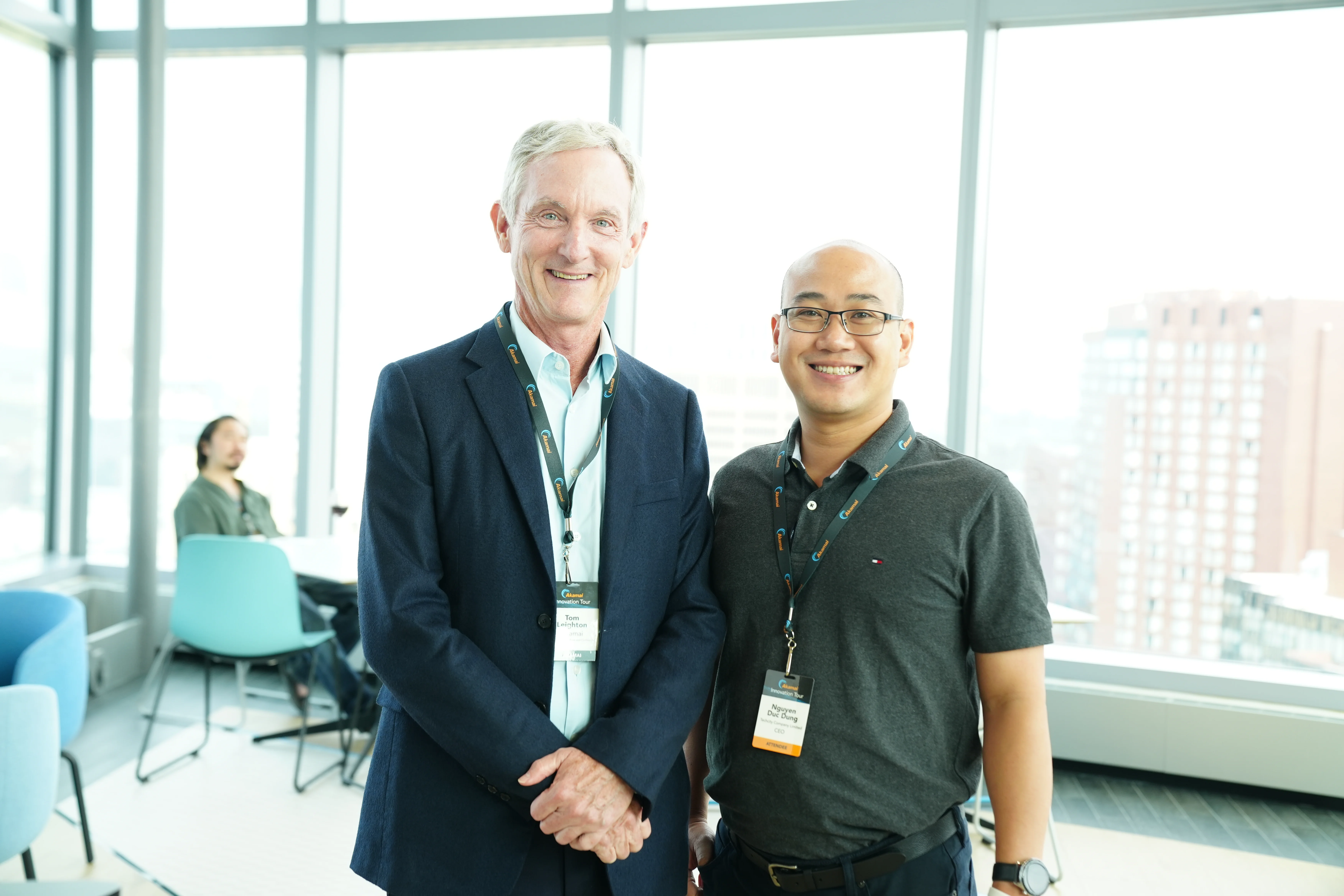


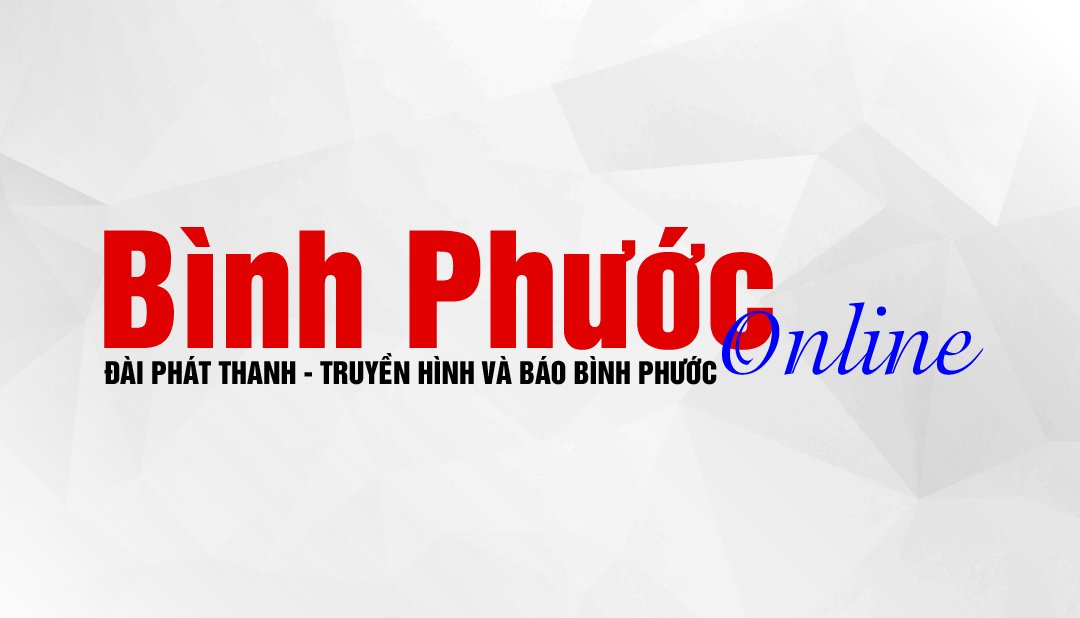
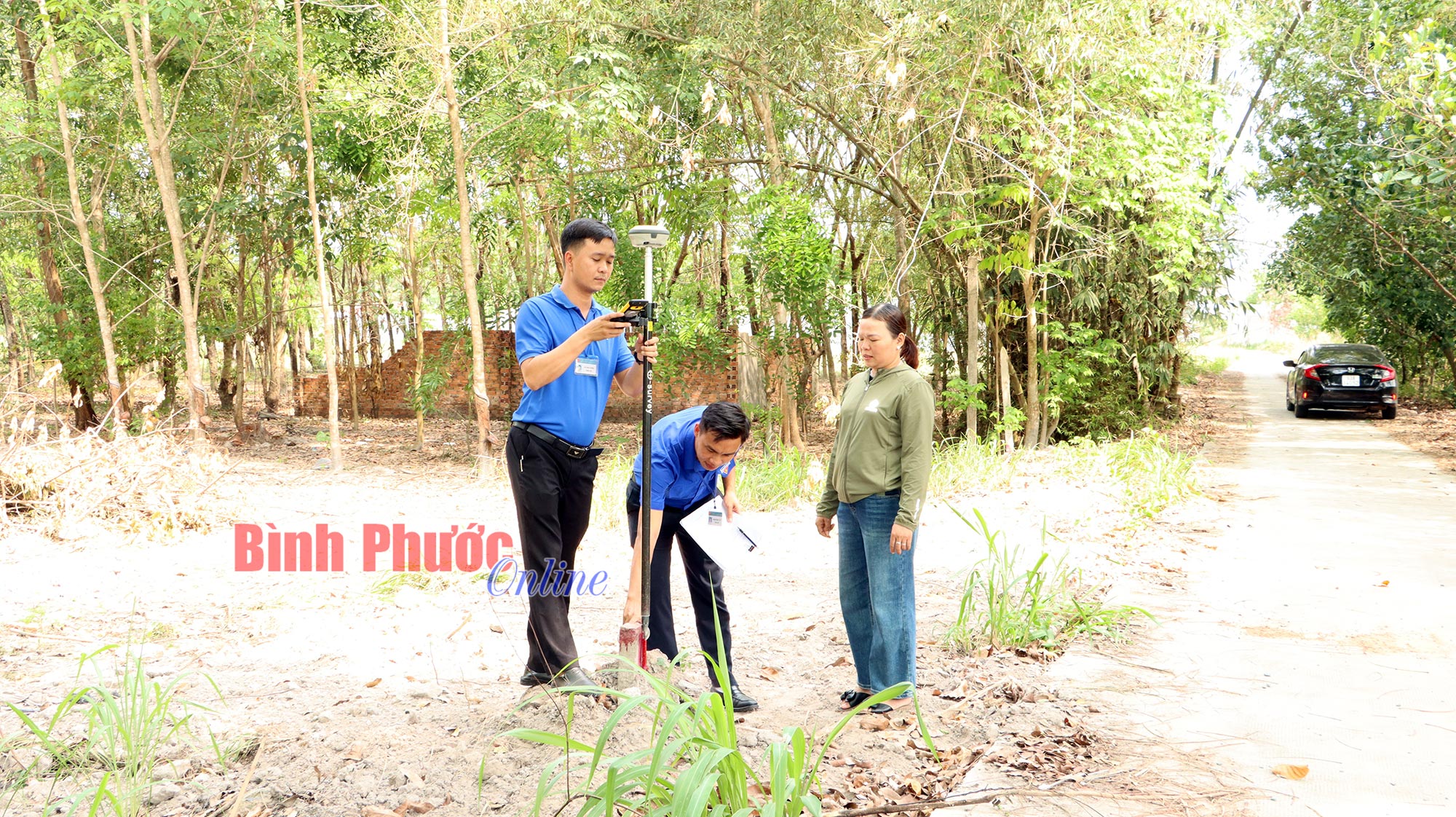
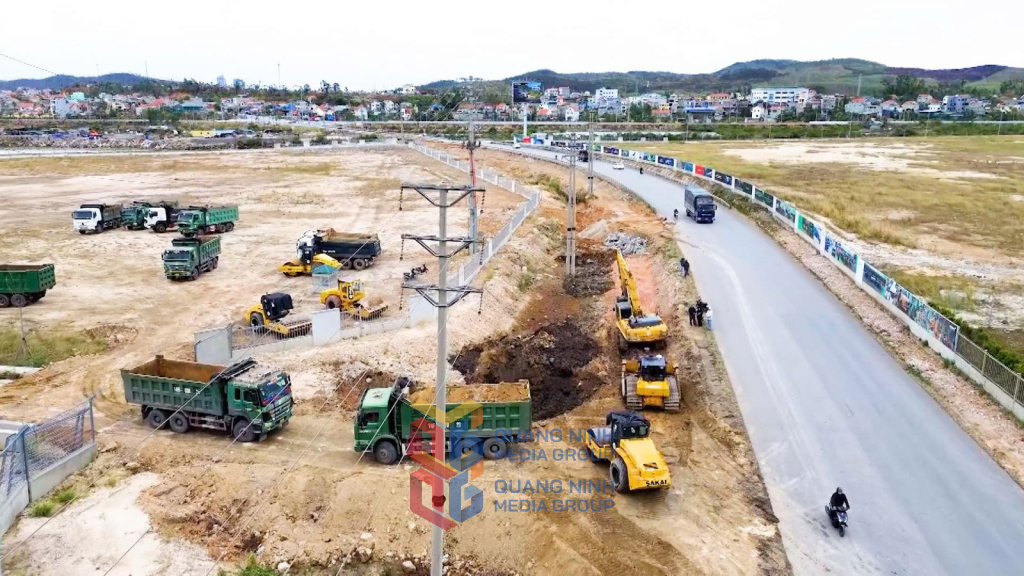

Comment (0)